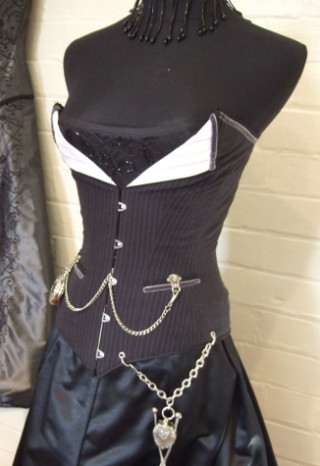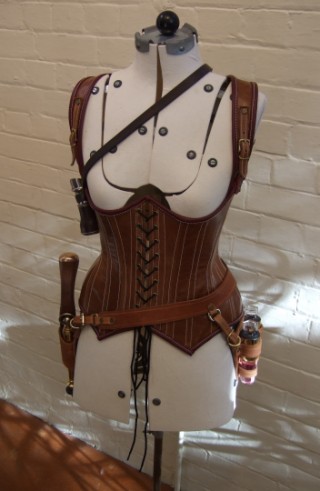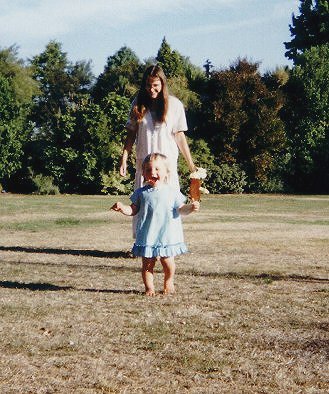Alright, I admit it, I briefly took my eye off the Australian net censorship ball. Apparently this made it feel neglected enough to go completely batfuck crazy, and when it comes to this issue, my Batfuck Crazy Bar is high. So, let me tell you a little story, and then we may attempt to draw the moral from it.
On the 16th of March, the Australian Communications and Media Authority (ACMA) black-listed a page on WikiLeaks, which contained a leaked copy of the Danish net censorship black-list. This list had been put up on WikiLeaks, along with the Thai one, back in December last year. I’d seen a version of the list about a year ago that had been reverse-engineered.
The black-listing was a result of a complaint filed with the ACMA by a user of the Australian site Whirlpool. They published their complaint on that site, along with a copy of the response they received, which contained within it a hyperlink to the WikiLeaks page.
Whirlpool is now liable for an AU$11 000 per day fine for having the link on their site. Whirlpool's host had already been threatened with the fine for publishing an earlier link to another black-listed site, an anti-abortion site.
On the 19th of March, the Sydney Morning Herald ran a story stating that WikiLeaks had now published a list which it claimed was the ACMA black-list, from November last year. The SMH 'understood' that the list had been acquired from a filtering software company. Julian Assange, the founder of WikiLeaks, is adamant that the list is genuine.
Both the ACMA and Senator Stephen Conroy have come out and said that the list is not the ACMA black-list. Both have pointed out that the list at WikiLeaks contains 2395 urls, where the ACMA list at the same date only contained 1370. It should be noted that neither party has said that the ACMA list contains urls which are not on the leaked list.
Nevertheless, the Aussie net went crazy, because according to the SMH:
about half of the sites on the list are not related to child porn and include a slew of online poker sites, YouTube links, regular gay and straight porn sites, Wikipedia entries, euthanasia sites, websites of fringe religions such as satanic sites, fetish sites, [and] Christian sites
MaroochyBoardingKennels.com.au, canteens.com.au ("Tuckshop and Canteen Management Consultants"), and Queensland dentist Dr John Golbrani were understandably pretty concerned that they appeared on the list themselves.
Still, the discrepancy in the numbers, while explicable (duplication of sites, or links added by the software vendor), it was a worry. I held off indignation myself for a couple of days, which was all the time it took for another list to appear on WikiLeaks.
This one is dated March 18th, appeared on March 20th, and contains 1170 urls, including ones people know are on the ACMA list because they lodged complaints about them themselves. It also contains the Peaceful Pill Handbook site, which like the AbortionTV site, would appear to contain no material that falls inside the ACMA's purview.
The prompt appearance of a second, shorter list if anything made me even more suspicious. But here's the key to the whole thing: it doesn't matter if the leaked list is genuine or not.
It was already public knowledge that the ACMA list contains material that is perfectly legal to view – material you could go to a shop and buy. They enforce Section 7 of the Broadcasting Services Act, which includes prohibition of material which contains:
strong depictions of nudity, implied sexual activity, drug use or violence, very frequent or very strong coarse language, and other material that is strong in impact.
There is, apparently, something about the internet that makes mild porn grow horns and tentacles and become super-porn. Denmark’s black-list – intended, just like Australia's, to combat child pornography – contains 'normal' porn sites, even though pornography has been completely legal in Denmark since 1967.
But say you have no interest in porn and don't care if even the most vanilla porn sites get banned.
There's an AU$11 000 fine for linking to a site on the banned list.
You're not allowed to know which sites are on the banned list.
The fine also presumably applies to linking to sites which link to sites which are on the banned list.
And let's go back to that dentist.
"A Russian company broke into our website a couple of years back and they were putting pornographic listings on there ... [but] we changed across to a different web provider and we haven't had that problem since," Golbrani said in a phone interview.
He said the fact that he hadn't been removed from the list was "criminal" and he was scared potential customers may avoid him.
Dr Golbrani didn't know his site was on the black-list. The black-list is secret. He could not, therefore, apply to have his site removed from the black-list. What happened to him could happen to anyone.
Like copyright, censorship is about the future of the internet. How, for what reasons, and to what extent do we curtail its gloriously anarchic and largely free flow of great gobs of information, some of it distasteful? What are we prepared to give up, and to what ends?
However genuine the leaked lists are, it's simply a matter of degrees of fracking awful.
Last word to Stephen Fry.
But the internet is a city and, like any great city… there are also slums and there are red light districts and there are really sleazy areas where you wouldn't want your children wandering alone.
And you say, "But how do I know which shops are selling good gear in the city and how do I know which are bad? How do I know which streets are safe and how do I know which aren't?" Well you find out.
What you don't need is a huge authority or a series of identity cards and police escorts to take you round the city because you can't be trusted to do it yourself or for your children to do it.
And I think people must understand that about the internet - it is a new city, it's a virtual city and there will be parts of it of course that they dislike, but you don't pull down London because it's got a red light district.
Christchurch is Drinking Liberally again this Thursday, 7-8pm at Goodbye Blue Monday. Speaker is Therese Arseneau.



